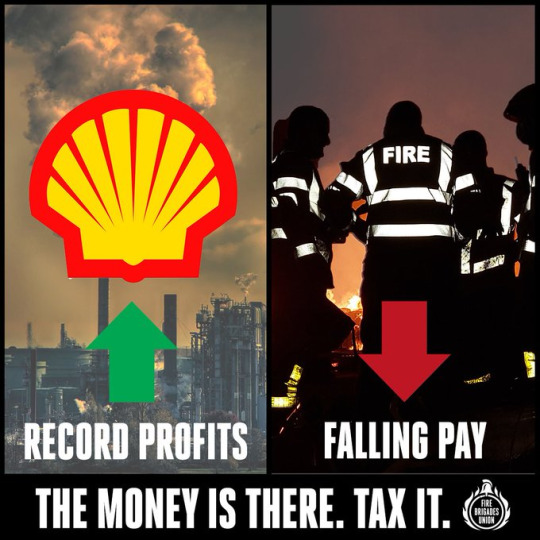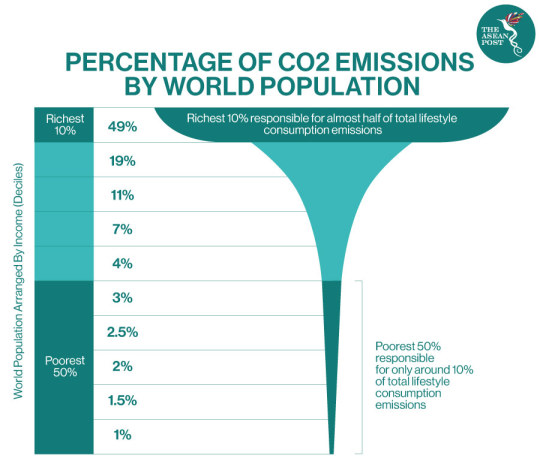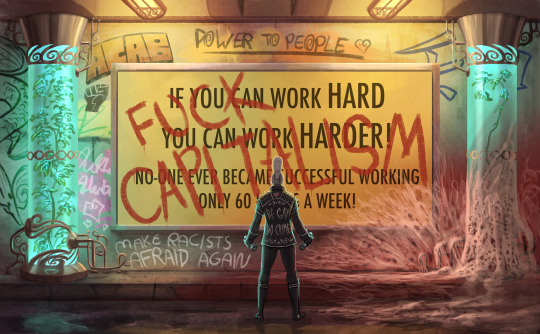#public sector wages
Text

#faiza shaheen#uk#politics#labour#islamophobia#racism#NEC#ukpol#general election#ge2024#kier starmer#Palestine#public sector wages#campaigning#parachuted candidate
23 notes
·
View notes
Text
Why increasing public sector wages won’t cause inflation.
One of the current Tory arguments about wages is that if they increase public sector wages, inflation will go up. Even by their own logic, this is clear nonsense, and there’s a reasonably strong argument that increasing public sector wages could actually stimulate the economy too.
So, where does this idea come from? Well, it comes from business, where the idea is that if you increase wages, some or all of that price rise gets passed on to the consumer, and prices go up. Of course, even this is false, because in many cases the consumer will say “fuck that” and not buy the product, or choose a cheaper alternative. Thus, the company must instead reduce profits to retain consumers (and let’s not be fooled, a lot of companies are still making huge, untaxed profits right now). Or they cut hours and provide a less good service.
But this doesn’t apply in the public sector. Increasing wages of people in education, or in healthcare or in the civil service etc has no direct impact on the price of anything, because the public don’t directly buy our services.
However, it may actually stimulate the economy more widely.
In general, when you give rich people more money, they save it, or possibly “invest it”- meaning it basically goes out of circulation and doesn’t further benefit anyone.
If you give people right at the bottom more money, then they almost inevitably spend it right away, usually on essentials- which benefits the economy because more money is being spent, so companies have more money to pay wages, etc etc. But this doesn’t work soooo well, because people always need essentials, and will find some way of getting them, generally, if they possibly can. Of course, we want a world where everyone has access to these essentials easily, but we’re trying to think like an economist right now.
Most public sector workers are somewhere between these two extremes although some are definitely in the second category.
Right now, however a lot of people like teachers, nurses, junior doctors, junior civil servants etc etc are “feeling the squeeze”- caught between high housing prices, rising bills and stagnating wages, there’s less and less money to spend on “luxuries”. People might cut back on eating out, on take aways, on buying new clothes, on buying presents, on “treats”, on non-essential travel, on buying things like books and nice stationery, on make up and toiletries, on haircuts and getting their nails done- the list goes on.
These things aren’t essential to survival, you can do without them. So if you can’t afford to buy them, you don’t. But of course, if a lot of people stop buying these things at once, it hurts the economy. Companies that make or sell these things see profits go down, perhaps reduce hours or lay off staff, which in turn gives them less money to spend, and it all becomes a vicious cycle which shrinks your economy- i.e. the worst possible thing if you’re a Tory, supposedly.
(Investing in education and health also has long term pay off, but anyway).
If the people at the bottom and the people a bit above the bottom had a bit more spare cash, there would be more spending, and more businesses would see a proportion of that spending. And so they can offer staff more hours, pay higher wages, employ more staff. There’s more money going around and it’s a virtuous circle. The economy grows.
Would some companies then put their prices up? Maybe. Companies will often raise prices whenever they can. But the pressure to increase prices tends to come from increased costs, not increased custom. And it would matter less because everyone or nearly everyone would be earning more.
Cutting and cutting just leaves everyone poorer. We know this.
So why do the Tories keep going on TV and spouting bollocks? It might be because they don’t actually understand the economics of the situation (scarily likely) but it’s also likely to be ideological. They’d rather “win” the fight with the unions than do something that could actually help everyone.
#uk politics#cost of living crisis#economics#tories#public sector pay#wage stagnation#squeezed middle#capitalism#like#this might be the most capitalist thing I have ever written#but#I feel we have to counter the narrative at every point
334 notes
·
View notes
Text
Federal public sector workers’ wages, adjusted for inflation, are no better than they were in 2007, a new report from the Canadian Centre for Policy Alternatives shows.
“The average federal public sector worker’s wages only buy the same today as they did in October 2007,” the CCPA report states. “No other industry—none—has seen average inflation adjusted wages pushed back as far as federal public sector workers.”
Over 100,000 federal public workers hit the picket lines across the country on Wednesday with a two-year expired contract and no wage offers that kept up with the rising cost of living.
Even if the union wins its current wage demands of 4.5% increases each year for three years, “those average federal worker wages would still be 4.8 per cent below the industrial average,” the report notes.
Full article
Tagging: @politicsofcanada
#cdnpoli#canadian politics#canadian news#canada#canadian#workers rights#wages#federal public workers#federal public sector#federal employees#unions#strikes#strike action#CCPA#canadian centre for policy alternatives
88 notes
·
View notes
Text
It’s been hours and I am still so annoyed about my fucking a manger today lmao
#first and foremost I’m the king of holding a grudge so jot down#but second I WISH it were socially acceptable to tell people when you don’t give a fuck#like ma’am I’m being paid minimum wage to work a three hour shift I do NOT care about our corporate image that much#I don’t need a ten minute lecture about branding because I asked if we were going to get a more obvious open sign#and I especially don’t give a fuck about upselling people#I don’t care about your bottom line I care about having money for rent and not selling my soul in the process#there is a reason my goals lie in public sectors and not retail#I don’t even hate my job I actually quite like my job but I’m not built for retail long term#I have no desire for growth#my one goal here is to help customers find shit and put things on shelves#I have zero concerns otherwise
2 notes
·
View notes
Text
Court Order Ignored: PHED Employees' Salaries Remain Unpaid
Non-Gazetted Employees Federation plans legal action over delayed wages
PHED Adityapur Division faces backlash as employees’ salaries remain unpaid despite court order.
JAMSHEDPUR – The Executive Engineer of the PHED Adityapur Division is being accused by the Non-Gazetted Employees Federation of disregarding a High Court order to pay overdue salaries.
For the past eight months, seven employees of…
#जनजीवन#contempt of court PHED#delayed salary impact#government employee wage issues#Jamshedpur labor disputes#Jharkhand High Court order violation#Jharkhand public sector employees#Life#Non-Gazetted Employees Federation protest#PHED Adityapur Division salary delay#Sumit Kumar PHED#Vimal Singh Federation President
0 notes
Text
Allow each Governor negotiate what it can pay - Governors
Their call came as the Nigerian Governors’ Forum, NGF, said on Wednesday night that it would not cease to engage the stakeholders to reach a consensual solution to the new minimum wage crisis.
Although President Bola Tinubu, in an unusual manner, was in attendance at the National Economic Council, NEC meeting often chaired by Vice President Kashim Shettima but silent throughout the meeting.
It…

View On WordPress
#governors#indefinite strike action#labour union#meritime workers of nigeria#national assembly#NEC#new minimum wage#News#Politics#president#the private sector workers#the public sector workers#trade union#vice president
0 notes
Text
Are public sector wages to low in France ?
Trade unions have called on France’s 5.7 million public sectors workers to walk out on march 19th in a push for better pay and conditions, a month after the government announced some €10 billion in public spending cuts
One in five of France’s active population works in the public sector – they teach, provide healthcare, and ensure a host of administrative services that keep the country ticking…

View On WordPress
0 notes
Text
French public sector workers demand higher wages
Unions called on France’s 5.7 million public sector workers to walk out on Tuesday to demand better pay and conditions a month after the government had announced public spending cuts of about 10 billion euros, according to RFI.
Union representatives claim that wages have failed to follow inflation while working conditions have deteriorated.
We urgently need to open negotiations to improve career prospects and take general measures to improve pay.
They called for “an immediate 10 per cent increase in the value of the index point,” which France used to determine public sector wages. Mylène Jacquot, a senior official from France’s CFDT union, stated:
“We are still in a period of quite high inflation. Public sector workers’ purchasing power is impacted, so that’s our primary demand.”
Read more HERE

#world news#world politics#news#europe#european news#european union#eu politics#eu news#france#france news#french politics#public sector#wage
0 notes
Text
y’all i just picked up a voters pamphlet for the primaries and 😭😭 trump is in the very fucking back oh my god i’m rolling
#that’s the only piece of good news in this fucking pamphlet tho#gonna vote dean phillips. don’t think he’s gonna win but hoping!!!#i know literally nothing about this dude other then what’s in the pamphlet#but he was the only person to include his key positions so???#also like livable wages for public sector employees is a pretty solid key position#and he’s gotta be better then genocide joe. one can hope#i rlly just want joey to walk into the woods and let the wolves take him
1 note
·
View note
Text

135 notes
·
View notes
Text
The CFPB is genuinely making America better, and they're going HARD

On June 20, I'm keynoting the LOCUS AWARDS in OAKLAND.

Let's take a sec here and notice something genuinely great happening in the US government: the Consumer Finance Protection Bureau's stunning, unbroken streak of major, muscular victories over the forces of corporate corruption, with the backing of the Supreme Court (yes, that Supreme Court), and which is only speeding up!
A little background. The CFPB was created in 2010. It was Elizabeth Warren's brainchild, an institution that was supposed to regulate finance from the perspective of the American public, not the American finance sector. Rather than fighting to "stabilize" the financial sector (the mission that led to Obama taking his advisor Timothy Geithner's advice to permit the foreclosure crisis to continue in order to "foam the runways" for the banks), the Bureau would fight to defend us from bankers.
The CFPB got off to a rocky start, with challenges to the unique system of long-term leadership appointments meant to depoliticize the office, as well as the sudden resignation of its inaugural boss, who broke his promise to see his term through in order to launch an unsuccessful bid for political office.
But after the 2020 election, the Bureau came into its own, when Biden poached Rohit Chopra from the FTC and put him in charge. Chopra went on a tear, taking on landlords who violated the covid eviction moratorium:
https://pluralistic.net/2021/04/20/euthanize-rentier-enablers/#cfpb
Then banning payday lenders' scummiest tactics:
https://pluralistic.net/2022/01/29/planned-obsolescence/#academic-fraud
Then striking at one of fintech's most predatory grifts, the "earned wage access" hustle:
https://pluralistic.net/2023/05/01/usury/#tech-exceptionalism
Then closing the loophole that let credit reporting bureaus (like Equifax, who doxed every single American in a spectacular 2019 breach) avoid regulation by creating data brokerage divisions and claiming they weren't part of the regulated activity of credit reporting:
https://pluralistic.net/2023/08/16/the-second-best-time-is-now/#the-point-of-a-system-is-what-it-does
Chopra went on to promise to ban data-brokers altogether:
https://pluralistic.net/2024/04/13/goulash/#material-misstatement
Then he banned comparison shopping sites where you go to find the best bank accounts and credit cards from accepting bribes and putting more expensive options at the top of the list. Instead, he's requiring banks to send the CFPB regular, accurate lists of all their charges, and standing up a federal operated comparison shopping site that gives only accurate and honest rankings. Finally, he's made an interoperability rule requiring banks to let you transfer to another institution with one click, just like you change phone carriers. That means you can search an honest site to find the best deal on your banking, and then, with a single click, transfer your accounts, your account history, your payees, and all your other banking data to that new bank:
https://pluralistic.net/2023/10/21/let-my-dollars-go/#personal-financial-data-rights
Somewhere in there, big business got scared. They cooked up a legal theory declaring the CFPB's funding mechanism to be unconstitutional and got the case fast-tracked to the Supreme Court, in a bid to put Chopra and the CFPB permanently out of business. Instead, the Supremes – these Supremes! – upheld the CFPB's funding mechanism in a 7-2 ruling:
https://www.scotusblog.com/2024/05/supreme-court-lets-cfpb-funding-stand/
That ruling was a starter pistol for Chopra and the Bureau. Maybe it seemed like they were taking big swings before, but it turns out all that was just a warmup. Last week on The American Prospect, Robert Kuttner rounded up all the stuff the Bureau is kicking off:
https://prospect.org/blogs-and-newsletters/tap/2024-06-07-window-on-corporate-deceptions/
First: regulating Buy Now, Pay Later companies (think: Klarna) as credit-card companies, with all the requirements for disclosure and interest rate caps dictated by the Truth In Lending Act:
https://www.skadden.com/insights/publications/2024/06/cfpb-applies-credit-card-rules
Next: creating a registry of habitual corporate criminals. This rogues gallery will make it harder for other agencies – like the DOJ – and state Attorneys General to offer bullshit "delayed prosecution agreements" to companies that compulsively rip us off:
https://www.consumerfinance.gov/about-us/newsroom/cfpb-creates-registry-to-detect-corporate-repeat-offenders/
Then there's the rule against "fine print deception" – which is when the fine print in a contract lies to you about your rights, like when a mortgage lender forces you waive a right you can't actually waive, or car lenders that make you waive your bankruptcy rights, which, again, you can't waive:
https://www.consumerfinance.gov/about-us/newsroom/cfpb-warns-against-deception-in-contract-fine-print/
As Kuttner writes, the common thread running through all these orders is that they ban deceptive practices – they make it illegal for companies to steal from us by lying to us. Especially in these dying days of class action suits – rapidly becoming obsolete thanks to "mandatory arbitration waivers" that make you sign away your right to join a class action – agencies like the CFPB are our only hope of punishing companies that lie to us to steal from us.
There's a lot of bad stuff going on in the world right now, and much of it – including an active genocide – is coming from the Biden White House.
But there are people in the Biden Administration who care about the American people and who are effective and committed fighters who have our back. What's more, they're winning. That doesn't make all the bad news go away, but sometimes it feels good to take a moment and take the W.

If you'd like an essay-formatted version of this post to read or share, here's a link to it on pluralistic.net, my surveillance-free, ad-free, tracker-free blog:
https://pluralistic.net/2024/06/10/getting-things-done/#deliverism
#pluralistic#cfpb#consumer finance protection board#rohit chopra#scotus#bnpl#buy now pay later#repeat corporate offenders#fine print deception#whistleblowing#elizabeth warren
1K notes
·
View notes
Note
First five things you’d do as First Minister with a huge majority?
Massive housing reform - Rent Controls, increased taxation on 2nd properties, massive regulation brought against AirBnB landlords, and increase the number of social housing.
Universal Basic Income/Government Job Guarantee Program - Job guarantee program would create a true national living wage
Massive Digital Transformation overhaul for the Public Sector - Get everyone speaking the same language, focus on regional economic development
Adopt immigration policy that encourages more people to come to Scotland
Abolish Conversion Therapy, pass Gender Recognition Reform and officially recognise non-binary genders.
Answering this as if I was FM of 1st Indy Scottish Government.
268 notes
·
View notes
Text
Okay I'm riled up about this rn so time for a history of economics lesson (rant) from me, a stranger on the internet
I'm a communist, I hate capitlism, so lemme just put that out there. But capitlism had its moments. Even marx had some praise for parts of capitlism.
And by far the most successful form of capitlism was Keynesian economics, as evident by the enormous increase in living standards in those countries which adopted it between the 1930s and 1970s.
What's Keynesian economics? The idea that capitlism can't survive on its own, and must be supported by government spending at the poorest ends of society and taxes at the richest ends of society (essentially the opposite of trickle down economics) as well as strong regulations on certain industries like banking.
It basically started in 1936 with President Roosevelt who was a personal friend of John Keynes (who the theory is named after).
Roosevelt implemented Keynesian economics to great effect; he raised the top tax rate to 94% (he actually wanted a 100% tax rate on the highest incomes, essentially creating a maximum wage, but the senate negotiated down to 94%) and similarly high corporate tax rates, he created the first ever minimum wage, created the first ever unemployment benefit, created social security in America, pension funds, and increased public spending on things like public utilities and infrastructure, national parks, etc. Which created about 15 million public sector jobs.
This ended the great depression and eventually lead to America winning world War 2, after which many countries followed suit in implementing similar policies, including UK, Australia, and NZ (apologies for the anglosphere-centric list here but they're the countries I'm personally most familiar with so bare with me)
Over the next 40 years these countries had unprecedented growth in living standards and incomes, and either decreasing or stable wealth inequality, and housing prices increasing in line with inflation. Virtually every household bought a car and a TV, rates of higher education increased dramatically, america put a man on the moon, and so on.
Then it all abruptly ended in the 80s and the answer is plain and obvious. 1979 thatcher became UK prime minister. 1981 reagan became US president. 1983 the wage accords were signed in aus. 1984 was the start of rogernomics in NZ (Someone link that Twitter thread of the guy who posts graphs of economic trends and points out where reagan became president)
(Also worth noting those last two in NZ and Aus were both implemented by 'left' leaning governments, but they are both heavily associated with right wing policies.)
This marked the beginning of trickle down economics: tax cuts, privatization of publicly owned assets, reduction in public spending, and deregulation of the finance sector. The top tax rates are down to the low 30s in most of these countries, down from the 80s/90s it was prior. Now THATS a tax cut.
And what happened next?
Wages stagnated. Housing prices skyrocketed. Bankers got away with gambling on the economy. Public infrastruce and utilies degraded. And wealth inequality now exceeds France in 1791.
I don't know how anyone can deny the evidence if they see it, but there's so much propaganda and false information that a lot of people just don't see the evidence.
Literally all the evidence supports going back to Keynesian economics but now that the rich have accumulated so much wealth it's virtually impossible to democratically dethrone them when they have most of the politicians on both the right and the left in their pocket.
Unfortunately it was the great depression and ww2 that gave politicians the political power to implement these policies the first time around. Some thought the 2008 crash would spur movement back towards Keynesianism (which it actually did in Iceland, congrats to them), I hoped covid would force governments to now, but nope.
All these recent crises' seem to have just pushed politics further and further right, with more austerity and tax cuts.
I don't really have a message or statement to end on other than shits fucked yo.
#also this is purely talking about the economics side of things#i know pre-80s the social side of politics was fucked despite the increasing living standards#with jim crow laws ans segregation and countless anti-queer laws etc.#and i know you canr seperate the economy entirely from social aspects of politics#but for the purposes of this post this is about the theoretical implications of different forms of capitlism#thats also why im not mentioning the recent descent towards fascism even tho it is closely tied to the economy#anyway#so yeah ive been reading a lot on economics lately#capitlism#economy#Keynesian economics#communism
5K notes
·
View notes
Text
Because of what's happening on Twitter...
I've made a little diagram to demonstrate why billionaires and the ultra-wealthy are bad for society.

(Text in Image)
"If we view society as a body, every sector is like a different organ within the body that serves a function and works in harmony with other organs to maintain balance. Every part of the body is important for the whole thing to function."
"The ultra-wealthy want you to believe they are the beating heart and thinking mind of the society – they are the innovators who create our jobs and their brilliance drives society forward. They deserve to be at the top of society because they have earned that. Without them, the body won’t function because they are the most important part."
"In reality, they are more like a malignant tumour, sucking all of the blood (resources) away from everything else (people and the planet) to fuel its own infinite growth, depriving the rest of the body and slowly killing it. Workers create all of the innovation and keep things running, the ultra-wealthy take all the credit."
------------------------------------------------------------------------
This is a public domain image so feel free to pinch it for whatever.
Elon Musk has put the careers of thousands of small business owners who depend on Twitter (myself included) in jeopardy by completely running it into the ground. Before this, Mark Zuckerberg had already been doing the same when he started pursuing Metaverse, making Instagram and Facebook much more unusable for artists. Do I really need to go into other examples of CEOs and very normalised practise of wage theft?
Meanwhile, the UK currently has the richest Prime Minister in its history. What is this man doing with this wealth? Continuing the Tory legacy of austerity in order to line his pockets and the pockets of his crony friends. This has resulted in a devastating cost of living crisis that continues to ravage the country as people's energy bills skyrocket out of control.
My diagram is pretty basic and lacks nuance, there's definitely more I could elaborate on with this comparison but I really don't have time. I just want people to get the basic point of how billionaires view themselves vs what function they actually serve. I'm also not here to debate whether some organs are more important than others since I'm not a doctor, that's not really the point here. And no, I don't care if people think I'm being harsh by comparing billionaires to a tumour. If they don't want to be compared to one they should stop acting like one. Jeff Bezos could end world hunger right now and chooses not to.
Also, I know a lot of people are going to come at me with the argument that billionaires give away massive amounts of money. First off, people like Jeff Bezos only give large sums of money to charity a.) for the sake of improving their public image and b.) because giving to charity allows them to write it off in their taxes. Also, charities in of themselves have a lot of problems, but that's a blog post for another day. Mutual Aid is a better way to help people directly. Really, the ultra wealthy need to be taxed, of course they do everything within their power to avoid taxes.
Also:

"Earning a lot of money" and "holding onto a lot of money" are two different things. You cannot be a multi-millionaire unless you hold onto that money. If you give away massive chunks of it to enrich society, you cease to be a billionaire.
Oh and this is worth a watch, too.
Furthermore:

Also before the inevitable great man comments:

Being a billionaire is a moral failing. Nobody needs that much money.
[Slight edit here - I made the assertion that a billionaire could not spend all of their money in their lifetime, but as someone in the comments pointed out it's very easy for them to completely waste billions in no time. Elon Musk and Mark Zuckerberg have shown that].
Anyway, if you would like to see more anti-Capitalist art from me, I am currently working on a webcomic called "Flowerpunk" - a story about a group of anarchists who are trying to save the city of Wyrdon from a supernatural plague known as "the rot." The comic heavily discusses disaster Capitalism and how the rich will use mass death and destruction as an opportunity to further line their pockets.
I also like to do little anti-Capitalist doodles relating to this project, which I plan to make into posters at some point.



Please consider donating a Ko-Fi also if you would like to help support this project. I am really struggling at the moment because I've basically lost a massive chunk of my client base due to this Twitter implosion and also because of the AI BS that has made it impossible for me to get any reach nowadays. The last year or so has been an absolute nightmare for my career because of all of this.
Thank you all for your continued support! Hopefully I can re-establish my audience here on Tumblr and wherever else I decide to go.
#Twitter#twitpocalypse#elongated muskrat#eat the rich#eat the fucking rich#tax the rich#tax the 1%#tax the billionaires#anti capitalism#workers of the world unite#working class solidarity#Can you tell that I am absolutely fucking done with this BS?
784 notes
·
View notes
Text
It really annoys me when misogynists bring up the whole ‘why wouldn’t everyone just hire women if they can get away with paying everyone less’ because this is such a simplistic take on a complicated issue and doesn’t factor in the following
1) Places already do this anyway. And then they enforce pay secrecy so women are unable to talk about their wages
2) It’s not always about who is cheapest to hire - it is also about who is going to produce the better quality of work and who is going to fit into the team better. In a team dominated by men, who did they think is going to fit into the team better? Another man. In a team full of misogynists who devalue women’s work, who did they believe will do better quality work? A man. Yesterday, I was watching a video where a woman said that she met another woman who was in charge of a team and openly admitted that she would not hire a woman to be part of this team because it would cause too many issues because of sexual harassment claims. These are things people will consider when hiring.
3) It’s simplifying the issue down to ‘all women are paid less than all men in all fields across all levels’ which isn’t true. Some of the pay differences are as a result of women in the same fields doing the same jobs as men but paid less (point 1), but a lot of it comes down the the following two things:
Women are less likely to be promoted than their male colleagues which is the result of many factors including inherent misogyny (thinking women shouldn’t be in leadership, thinking their work is lower quality, etc), women being ‘less dedicated’ due to family commitments, and taking longer to have similar experience to male colleagues due to time off on maternity/raising children
Fields that are dominated by women are lower paid overall, even when comparing to jobs with a similar educational requirement. Teaching and nursing are both jobs which require degrees yet are some of the lowest paid public sector jobs. Female dominated cleaning jobs (eg: housekeeping) are lower paid than similar male-dominated jobs (eg: janitor). Labour seen as ‘women’s work’ is devalued and therefore paid less
4) Whenever we discuss these other factors, like mat leave and taking care of the children, it’s always seen as an ‘explanation’ for why women are paid less, rather than part of larger socio-economic issues leading to women being paid less. Literally saw so many things when I was younger about how it’s only like 2p/£1 rather than 23p/£1 or whatever because once you factored in all of these things above you’d find men and women in similar roles in similar fields are actually paid pretty evenly, without recognising how those reasons themselves are part of the problem. Women are pushed towards lower paid fields from a young age (teaching, nursing, care work, etc). Women are the ones who take months off on maternity leave while men might take two weeks. Women are the ones taking career breaks to look after the kids. Women are the ones working part time or flexible hours so they can look after their children. All of these things have negative impact on women’s income and they stem from misogyny. They shouldn’t be ignored in gender pay gays discussions or used to explain why the gender pay gays isn’t ‘real’.
#I will scream at anyone who says it’s supply and demand#that’s such obvious bullshit#supply and demand in labour markets is broken#there have been massive shortages in nursing teaching and care for YEARS#supply and demand would have doubled their salaries#but has that happened?
109 notes
·
View notes
Text
Britons ‘need to accept’ they’re poorer, says Bank of England economist | Bank of England | The Guardian
British households and businesses “need to accept” they are poorer and stop seeking pay increases and pushing prices higher, the Bank of England’s chief economist, Huw Pill, has said....
Last year, BoE governor Andrew Bailey, was widely criticised after saying workers should not ask for big pay rises, to try to stop prices rising out of control.
Pill’s comments risk attracting fresh criticism that Threadneedle Street is out of touch over the cost of living crisis, at a time when public sector workers have been striking as they sought pay rises to match, or beat, inflation.
They come on a day in which Nestlé, PepsiCo and McDonald’s have all reported that higher prices boosted their sales this year, and as UK families face 17.3% grocery inflation in supermarkets.

Bailey was paid £495,000 in the year to 28 February 2022, while Pill was paid £88,000 for his first five months and 24 days, according the the central bank’s annual report, taking his annual salary to £180,000. According to the latest official data, median average household disposable income last year was £32,300.
The headline rate of inflation in the UK fell by less than expected in March, to 10.1% from 10.4% in February, as households came under pressure from food and drink prices soaring at their fastest annual rate since 1977.
440 notes
·
View notes